The CMBA Spring Blogathon: The Writers of Sunset Boulevard
 “We didn’t need dialogue. We had faces.”
“We didn’t need dialogue. We had faces.”
An interesting quote in a film that’s chock-full of writers, am I right?
Sunset Boulevard (1950) tells the tale of Norma Desmond (Gloria Swanson), faded silent film star who lives in a world built on the shaky foundation of yesterday’s fame. By sheer happenstance, Norma makes the acquaintance of one Joe Gillis (William Holden), and their relationship, as well as those with whom they interact most intimately, serves as the basis of this twisted, noirish yarn.
But beyond Norma’s eccentricities, and Joe’s self-absorbed actions, the devotion of Norma’s first-husband-now-butler Max von Mayerling (Erich Von Stroheim), and the sweet naivete of Joe’s friend, Betty Schaefer (Nancy Olson), there’s a whole ‘nother lens through which to view this film:
The story as seen through the words of the writers.
“Before those Hollywood columnists get their hands on it, maybe you’d like to hear the facts. The whole truth.” – Joe Gillis

Two original stories a week. TWO, y’all!!
When we first see Joe, he’s at a typewriter. Wait – scratch that. The very first time we see Joe, he’s lying face down in a swimming pool, speaking to us from the Great Beyond. But the second time we see him, he’s sitting on the bed in his apartment, clad in a bathrobe, pounding with great determination on his portable typewriter. We learn from Joe’s ever-so-helpful voiceover that he’s been grinding out two original stories every week, but that he hasn’t had much success: “Maybe they weren’t original enough. Maybe they were too original. All I know is they didn’t sell.” And we see the consequences of Joe’s failed efforts when two behatted gents show up at his door and announce that they are repossessing his 1946 Plymouth convertible for lack of payment.
But Joe’s mama didn’t raise any fools. A quick on-his-feet-thinker, he tells the fellas that he loaned the Plymouth to a pal, and when they depart, he quickly nabs the car from its hiding place in a nearby parking lot, behind Rudy’s Shoeshine Parlor. (“I was way ahead of the finance company. I knew they’d be coming around and I wasn’t taking any chances,” Joe confides. “Rudy never asked any questions about your finances. He’d just look at your heels and he’d know the score.”) And where does Joe head with his sought-after car? Straight to Paramount Studios where he had another one of his “original” stories floating around. Even though his agent had previously informed him that the story was “dead in the water,” Joe was no quitter. He knew a big-shot producer at the studio, and decided to give the story one last try. After all, he had his car to think of.
“I just think that pictures should say a little something.” – Betty Schaefer

Miss Schaefer found Joe’s writing to be flat. And trite.
At Paramount Studios, we’re introduced to Betty Schaefer, a member of the studio’s Readers Department. She summoned to the office of Joe’s producer pal, Sheldrake (Fred Clark), who asks her for an overview of Joe’s story, “Bases Loaded.” When she enters the office and provides her opinion on the piece, Betty is unaware that the author is also present – so she doesn’t bite her tongue when she tells Sheldrake that the story is “just a rehash of something that wasn’t very good to begin with.” When she’s introduced to Joe, she has the good graces to be properly chagrined, but she’s not so embarrassed that she backs down from her stance on the story: “I just didn’t think it was any good. I found it flat and trite.”
“Don’t you know that the finest things in the world are written on an empty stomach?” – Joe’s agent
After he’s shot down at Paramount, Joe hunts down his agent. It’s not too much to ask, surely, for a three hundred dollar loan to make the past-due payments on his car. But Joe’s agent, Morino (Lloyd Gough), has other ideas. Sure, he could loan him the money – but he refuses. Losing his car would be the best possible thing for Joe, Morino opines. Forfeiting his means of transportation would force Joe to focus solely on his writing: “Now you’ll have to sit behind the typewriter.”
But Joe’s not picking up what his agent is putting down, if you know what I mean.
“Writing words, words, more words. Well, you’ve made a rope of words and strangled this business!” – Norma Desmond

Talk about epic!
Just when Joe has almost decided to hock all his belongings, buy a bus ticket back to Ohio, and return to his old $35-a-week job writing copy at the Dayton Evening Post, his fortunes take an upward swing. (For a while, at least.) After spotting the repo guys at a stop light, Joe leads them on a merry chase, then gives them the slip by pulling onto the property of a sprawling old mansion, which just happens to be owned by ex-silent film star Norma Desmond. Norma first spouts off her less-than-stellar opinion of talking pictures, but she changes her rancorous tune when she learns that Joe is a writer. Turns out that Norma is a bit of a writer herself – she’s been working for years on the story of Salome (“I think I’ll have DeMille direct it,” she declares).
“Sometimes it’s interesting to see just how bad bad writing can be. And this promised to go the limit.” – Joe Gillis

“A silly hodgepodge of melodramatic plots.” (Everybody’s a critic.)
Norma initially asks Joe to review a few scenes of the massive screenplay she’s writing, but before long, Joe sees an opportunity to line his pockets with more than lint. Although he judges her writing as a “silly hodgepodge of melodramatic plots,” he tells Norma that the work is great – that it only needs a little editing and organization. Using a bit of reverse psychology, he craftily informs her that he’s far too busy for the job – and before you can say “Bob’s your uncle,” Norma has hired Joe as her editor and moved him into her home. (“I dropped the hook, and she snapped at it,” Joe gloats.)
“I don’t want to be a reader all my life. I want to write.” – Betty Schaefer

They even talked about writing at Artie’s party!!
After working diligently for several weeks on Norma’s rambling screenplay, Joe finds that his role in the household has slowly but surely shifted. One day he’s painstakingly reading through Norma’s work, and the next, she’s buying him a new wardrobe and throwing a cozy New Year’s Eve party for two. When he rejects Norma’s none-too-subtle advances, Joe escapes to the home of his pal, Artie (Jack Webb), where he encounters Betty Schaefer – the gal at Paramount who’d labeled his writing as “trite.” As it happens, Betty had been hoping to run into Joe again – and not, as Joe snarkily suggests, so that she can “recover the knife she stuck in [his] back.” On the contrary, Betty has been reading over some of Joe’s old stories and found some material in one of them that she found to be worthwhile. But before she can share her own ideas for fleshing out the story, Joe learns that Norma has attempted suicide, and he rushes to her side.
“Yes, I was playing hooky every evening along in there. It made me think of when I was 12 and used to sneak out on the folks to see a gangster picture. This time it wasn’t to see a picture. It was to try and write one.” – Joe Gillis

The place to be for writers.
A couple of chance meetings – one at Schwab’s Drugstore, the meeting place for struggling writers and other starving artists – leads to a series of late night collaborations between Joe and Betty, as they work together on creating a screenplay. Between writing sessions, Joe and Betty walk the streets on the Paramount backlot, sharing their thoughts and their pasts – and falling in love.
“And may I suggest that if we’re ever to finish this story, you stay at least two feet away from me.” – Joe Gillis
But Joe and Betty never get the chance to finish the script. Once Norma finds out that Joe is sneaking out each night to meet a woman, the proverbial poop hits the fan. Like Columbo on a case, she finds out Betty’s name and phone number, and gives her a call, asking her if she knows where and how Joe lives. “Miss Schaefer,” Norma purrs, “I’m trying to do you a favor. I’m trying to spare you a great deal of misery.” But Norma’s plan backfires. Joe does end his relationship with Betty – but he also packs his suitcase and prepares to leave Norma, as well, telling her that the trinkets she bought him are “just a little too dressy for sitting behind a copy desk in Dayton, Ohio.” Sadly for Joe, he doesn’t make it back to that copy desk. Norma – and her new revolver – see to that.

Even columnist Hedda Hopper gets in on the act.
And in one of the film’s final scenes, we’re left with yet another writer – famed gossip columnist Hedda Hopper, playing herself, calling the city desk of the L.A. Times and giving them the story about the murder committed by the famed star of yesteryear:
“I’m calling from the bedroom of Norma Desmond. Don’t bother with a rewrite. Take it direct.”
——–
This post is part of the CMBA Spring Blogathon: “Words, Words, Words!” Click here to read the great posts offered as part of this year’s event!
You only owe it to yourself. And the writer in you.



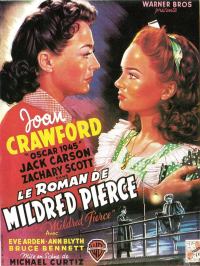




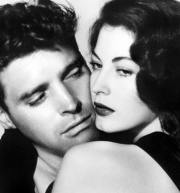




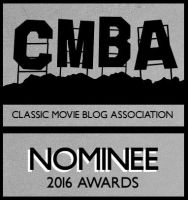









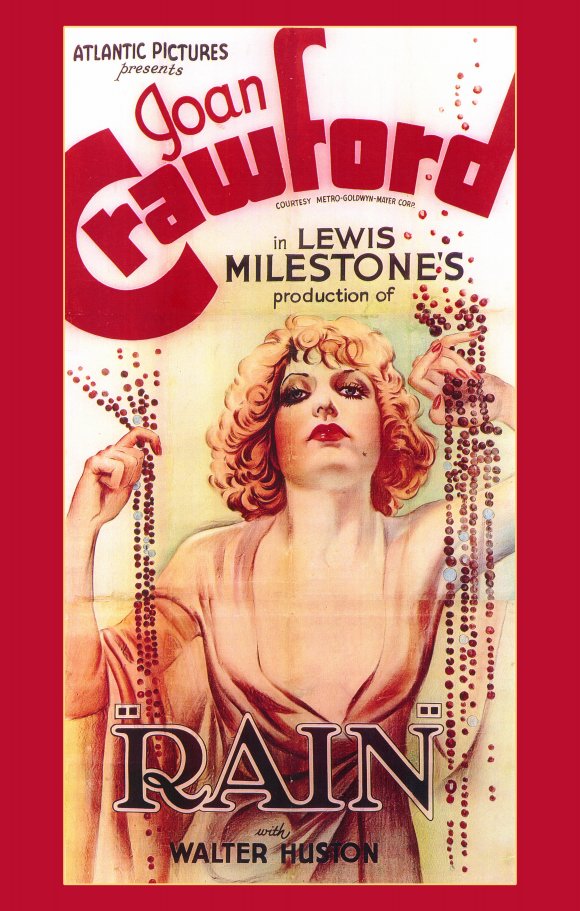

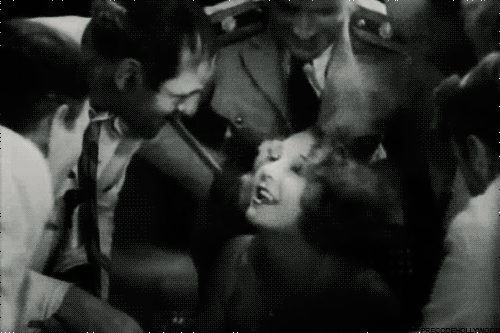
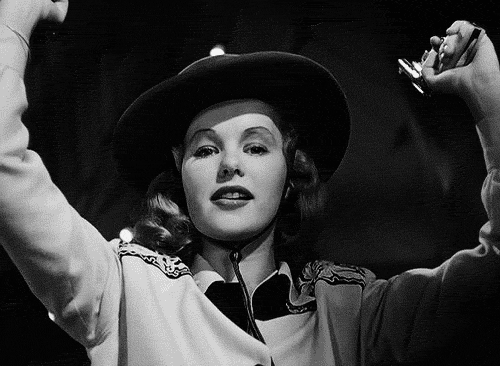

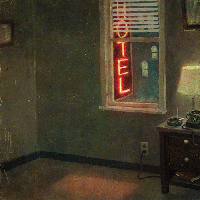
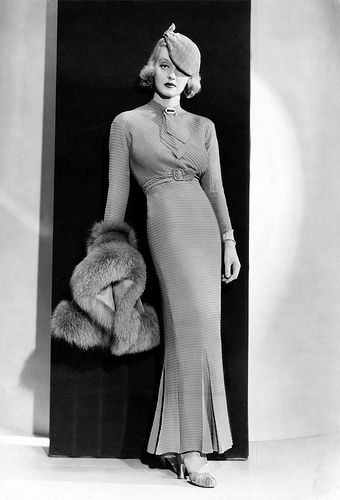



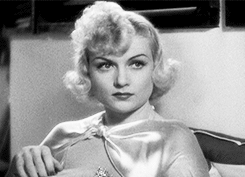





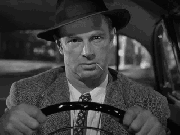

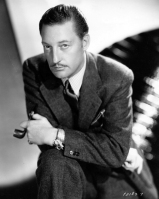
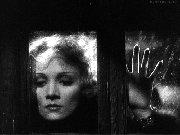


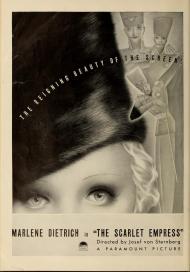
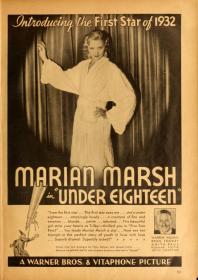
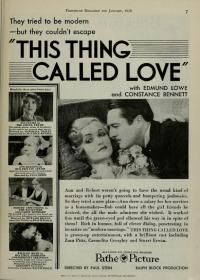


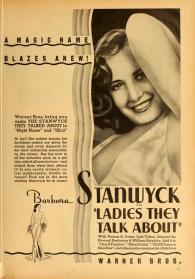


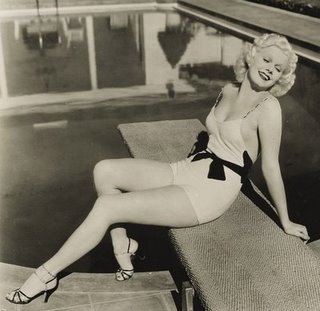




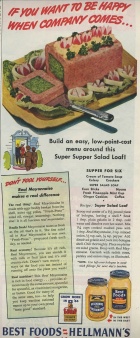
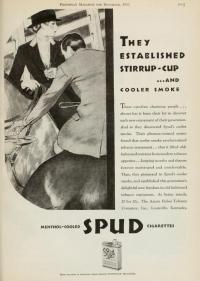

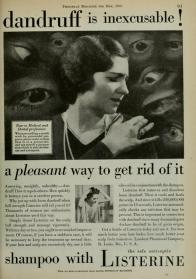
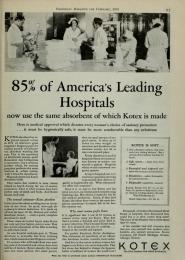
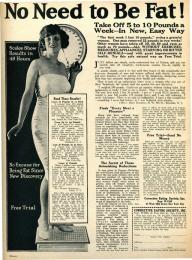


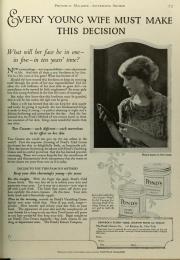
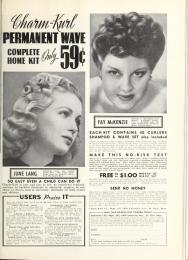
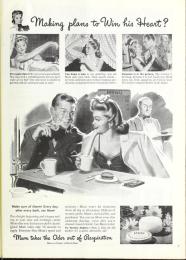


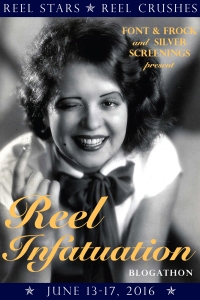

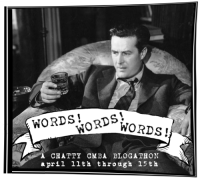

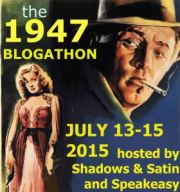
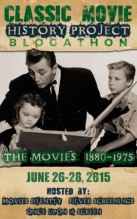


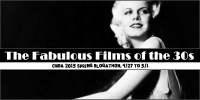
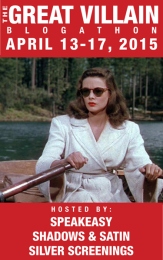

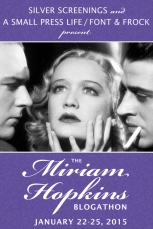
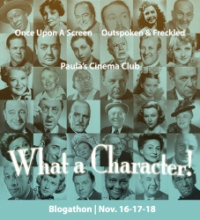
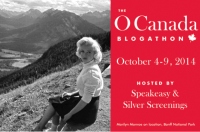



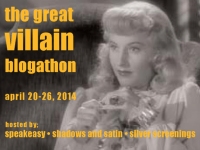
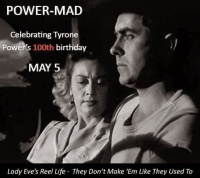


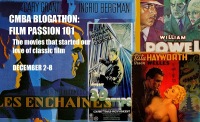
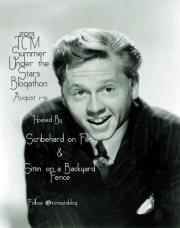
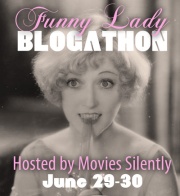


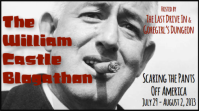

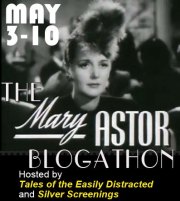


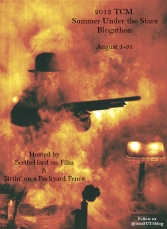


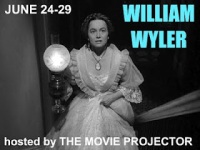

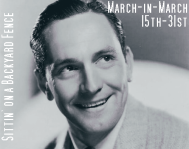
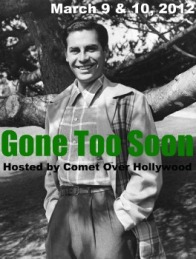


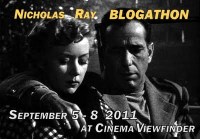

Very much enjoyed your themed dialogue quotes!
Thank you, Vienna! 🙂
I clicked the pic but did not get a link
Sorry about that! I fixed it. 🙂 Thanks for letting me know.
Always thorough, interesting and insightful! I love this movie and it actually took me a couple of times to realize how much it was about writing. When I was very young, other parts of it pulled my attention. But even at a young age, I felt sorry for Joe when Norma pushes him to work on her gigantic and totally bad screenplay!
Thanks, Becky! I love this movie, too. Your comment about feeling sorry for Joe made me LOL!
I love all the quotes about writing you’ve included from the film, especially Norma Desmond’s: “Writing words, words, more words. Well, you’ve made a rope of words and strangled this business!” It’s good advice, really.
Yes, I never considered the writers’ angle in Sunset Blvd, but you can bet I will the next time I see this.
Thanks, Ruth! I’d never thought about the writers either, except for Joe — but Sunset was full of ’em!
“Film’s thought of as a director’s medium because the director creates the end product that appears on the screen. It’s that stupid auteur theory again, that the director is the author of the film. But what does the director shoot – the telephone book? Writers became much more important when sound came in, but they’ve had to put up a valiant fight to get the credit they deserve.” —Billy Wilder
Why even Max is a writer – of phony fan mail.
Thanks for putting the focus in “Sunset Blvd.” back where it belongs, behind the typewriter, and for doing it in such an engaging manner.
Thanks so much for your compliment, CW — and for the great Wilder quote! And I love that about Max — you’re so right! Everybody got in on the act!
Wilder has been one of my favorite filmmakers ever since I became hooked on film. His writing always sparkles with wit, cynicism and intelligence.
I totally agree, John. He was such a talent!
Awesome post! This film is amazing – no matter how many times I see it, write about it or read about it – it never fails to fascinate me. This was a great choice for our blogathon and you show just how good really good writing is.
Thank you so much, Marsha! I know what you mean about Sunset Boulevard — even if I just see a clip from it, it kinda takes my breath away.
Great post and terrific film. Wilder never ceases to amaze me as a director, and the differences in this film from others in his career is staggering. Definitely enjoyed the quote format!
Thank you, Danilo! I share your admiration for Wilder — he was simply fantastic.
Great movie and greet write up. Really dig the quote integration and of course, the fact that Billy Wilder simply mastered every genre he saw fit to conquer!
Thank you so much, Danilo!
Fantastic post on an epic classic. Perfect for the blogathon! Thanks for a fun read.
Thanks so much! I hope you’ll read my upcoming posts on this year’s event. First up, the 2016 trivia contest!
She’s still big. It’s the pictures that got small!!
We had great fun doing a parody on this film. It felt a bit irreverent, but I don’t think Wilder would have minded a bit.
Where did you do your parody, Kimberly?
[…] on a number of features that would have otherwise been in heavy contention, like Gun Crazy (1950), Sunset Boulevard (1950), The Asphalt Jungle (1950), The Big Heat (1953), The Big Combo (1955), and The Sweet Smell […]